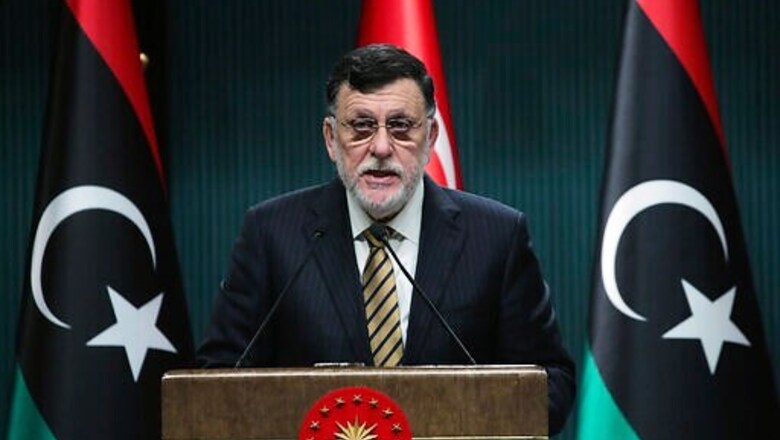
views
CAIRO: The United Nations on Saturday voiced alarm over what it called a dramatic turn of events in Libya’s civil war, after a power struggle between leaders of the Tripoli-based government surfaced in the wake of anti-corruption protests.
Libya is witnessing a dramatic turn of events that underlines the urgent need to return to a full and inclusive political process, the U.N. support mission in Libya said.
Protests over deteriorating economic conditions erupted earlier this week in the capital and elsewhere in western Libya, which is controlled by forces loyal to the U.N.-supported government.
In Tripoli, local militia allied with the government opened fire on the demonstrators using rifles and truck-mounted guns, and abducted some of the protesters.
Prime Minister Fayez Sarraj and his interior minister, Fathi Bashaga, initially accused outlawed infiltrators over the violence. The prime minister also said the protesters did not obtain necessary permits for their rally and described their demonstrations as riots.
However on Friday, Sarraj suspended Bashaga and referred him to an administrative investigation after the interior minister accused a government-allied militia of attacking the peaceful protesters in Tripoli this week.
Bashaga, who was excluded from two high-profile military and security meetings in the capital over the past few days, quickly responded. He said in a statement he accepted the premier’s decision but demanded a public and live questioning to expose the facts of the incident.
The U.N. mission in Libya said it was still concerned about the excessive use of force against demonstrators as well as the arbitrary arrest of a number of civilians. It did not say how many people were detained.
Over the past two days, militias sealed off main streets and roads to prevent the demonstrators from reaching Tripolis Martyrs Square, the epicenter of the protests, according to two residents who spoke on condition of anonymity for fear reprisals.
A group of women however protested in the city center before being dispersed. Two women were wounded and four others were arrested, according to the protest movement, known as Hirak Aug. 23.
The movement called for civil disobedience until achieving their demands that include handing over power to the Supreme Judicial Council to work towards presidential and parliamentary elections.
Protests also spread to the southern town of Sabah and the eastern town of Quba, both under the control of rival east-based Libyan forces led by Khalifa Hifter.
The U.N. also said it is concerned about on-going human rights violations and abuses in the coastal city of Sirte, which is controlled by Hifters forces since January. It said at least one civilian was killed and several others were arrested.
The prolific use of hate speech and incitement to violence appears designed to further divide Libyans, increase polarization and tear at the countrys social fabric, the U.N. mission said.
Oil-rich Libya was plunged into chaos when a NATO-backed uprising in 2011 toppled longtime dictator Moammar Gadhafi, who was later killed. The country is now split between rival east- and west-based administrations, each backed by different armed groups and foreign governments.
Disclaimer: This post has been auto-published from an agency feed without any modifications to the text and has not been reviewed by an editor




















Comments
0 comment